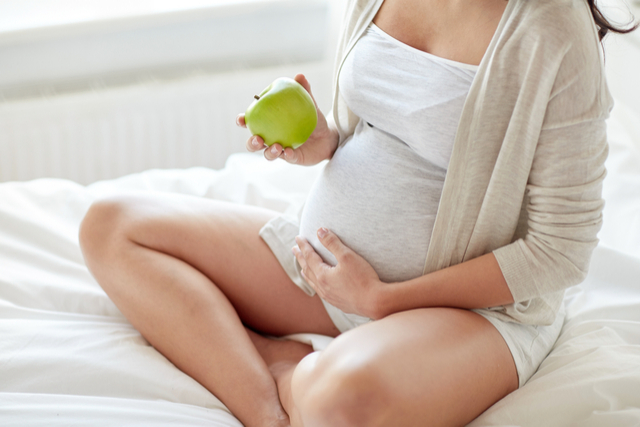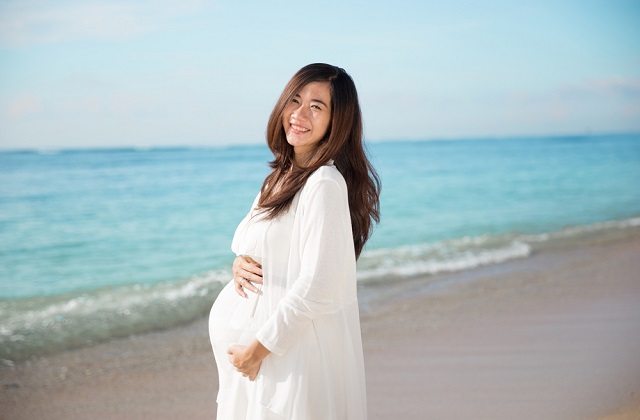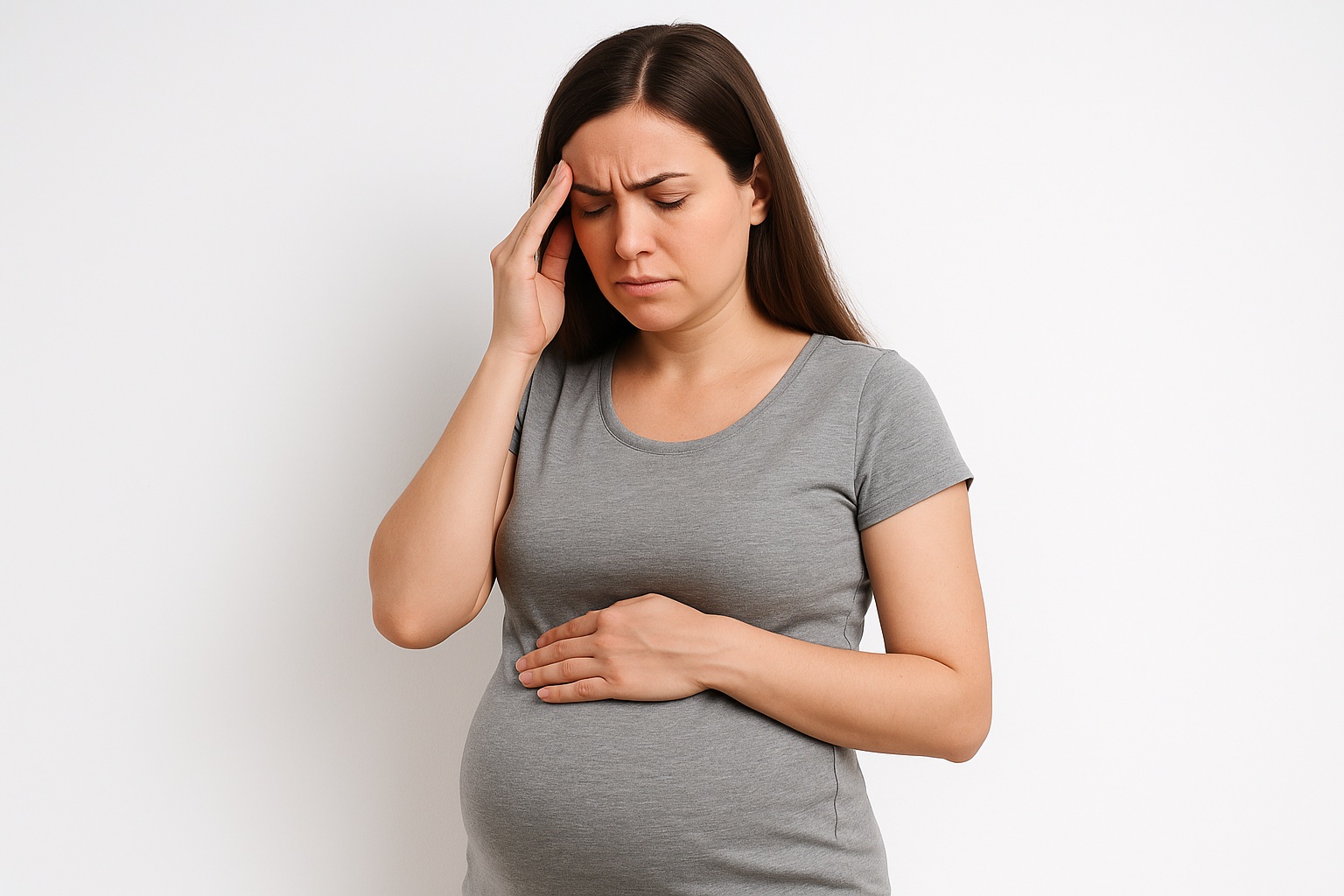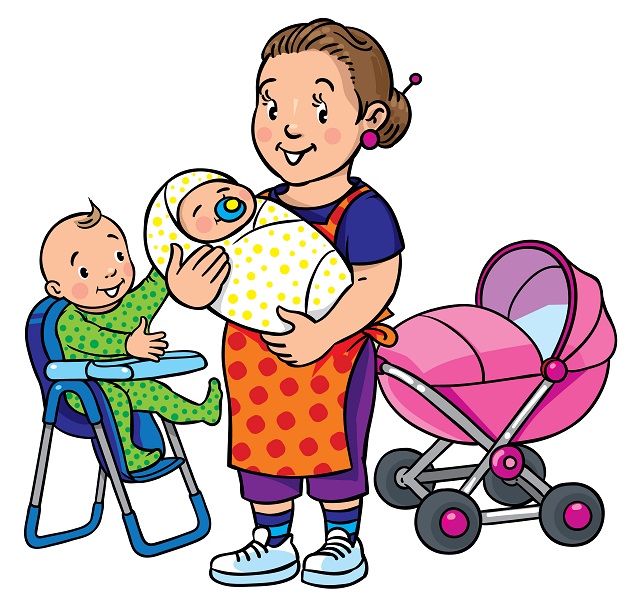Having A Baby After The Age Of 35
Having a baby after 35 years old is believed to pose a higher risk to both the mother and the baby. However, with proper prenatal care, diagnosis of possible conditions and treatment, the risks for the pregnant woman and the baby will be reduced.
The increased risk of pregnant women over the age of 35 is largely due to underlying medical problems such as high blood pressure or diabetes that are more common in older women. As a result, they are also at a higher risk of developing certain complications during the pregnancy such as gestational diabetes, preeclampsia, placental abruption (premature separation of the placenta from the uterine wall), and placenta previa (placenta lies low in the uterus, partly or completely covering the cervix).
Pregnant women over the age of 35 are also more likely to have a baby with low birth weight of less than 5 ½ pounds or a premature delivery.
However, proper prenatal care can increase the chances of having a healthy baby to be similar to that of younger and healthy women.
Ways to ensure that the baby is safe and healthy:
1. Get early and regular prenatal care
Potential problems can be treated early with regular prenatal care. The pregnant woman should visit the doctor regularly in the first 8 weeks of her pregnancy as this period is important to the baby’s development. The doctor will check the blood pressure, blood glucose levels and test her urine for protein and sugar. It is crucial to detect whether the mother has gestational diabetes and preeclampsia, a condition that causes high blood pressure along with protein in the urine. An early detection can curb the potential impact of the condition.
Prenatal care includes screenings, regular exams, pregnancy and childbirth education, counselling and support.
2. Consider optional prenatal tests for women over 35
Some special prenatal tests for older mothers are available to determine the risk of having a baby with a birth defect. Pregnant women can understand more from their doctors and decide if it is suitable for them.
3. Consume a prenatal vitamin
Pregnant women aged over 35 may have a higher risk of giving birth to a baby with birth defects. Hence, taking a daily prenatal vitamin serves as a protection against them and ensures the health of both the mother and baby. A pregnant woman should take in at least 400mg of folic acid. Getting enough folic acid every day before and during the first 3 months of pregnancy can help to prevent defects involving a baby’s brain and spinal cord, known as neural tube defects. However, do not take more than 1,000 mcg of folic acid without asking your doctor.
4. Maintain a well-balanced diet with the required nutrients
Nutrition is very important while planning to conceive, during pregnancy, while nursing and after that. Hence, it is recommended by healthcare professionals that women take a quality prenatal vitamin as soon as they decide to conceive. Getting the body ready with the required nutrients before pregnancy can reduce the possible risks and ensure that the mother and baby will be healthy.
A growing baby takes in nutrition from the mother as it develops. Without the additional nutrition to support the baby’s growth, there may be nutrition deficiency and adverse impact to the mother’s health. A pregnant woman needs more calcium, folic acid, iron and protein than a normal person, according to the American College of Obstetricians and Gynaecologists (ACOG). Choline, chromium, lutein and B-complex vitamins are also essential to support the health of the baby and the mother.
We have listed the required nutrients below, with their benefits and food sources that pregnant women can include in their diet.
- Folic Acid
Folic acid prevents neural tube defects like anencephaly and spina bifida and reduces the risk of birth defects such as cleft lip, cleft palate and some heart defects. It also reduces the risk of preeclampsia during pregnancy and is crucial for the growth of the placenta, synthesis of DNA and the development of the baby. Besides, it aids in the production of red blood cells and prevents anemia in the mother.
It may be hard to get the recommended amount of folic acid from diet alone. Nevertheless, pregnant women should consume more foods that contain folic acids, such as leafy green vegetables, fortified or enriched cereals, breads and pastas, beans and citrus fruits.
- Calcium
Pregnant women over the age of 19 needs 1,000 milligrams of calcium a day. During pregnancy, if the pregnant woman does not consume enough calcium, calcium will be drawn from the mother’s stores in her bones and given to the baby. Some natural foods that are high in calcium that pregnant women can consume include milk, yogurt, cheese, sardines, salmon and leafy greens like kale and bok choy.
- Iron
A pregnant woman also needs to take in sufficient iron of 27 milligrams a day, which is twice the amount needed by women who are not pregnant. This is as iron is needed to produce more blood to supply the baby with oxygen. Insufficient iron in the body can lead to anemia, a condition resulting in fatigue and an increased risk of infections.
Food sources which are high in iron include meat, poultry, fish, dried beans and peas or iron-fortified cereal.
- Protein
Protein helps to build the baby’s important organs such as the brain and heart. Hence, more protein is needed during pregnancy. Foods rich in protein will be meat, poultry, fish, dried beans and peas, eggs, nuts and tofu.
- Vitamin C
Vitamin C is necessary for the body of a pregnant woman to make collagen, a structural protein that makes up the cartilage, tendons, bones and skin. The vitamin also aids in tissue repair, wound healing, bone growth and repair, and is important for healthy skin. It helps the mother to fight infections and acts as an antioxidant, protecting cells from damage. Besides, it helps the body to absorb iron, especially from vegetable sources.
It is the easiest and safest to take vitamin C in diet rather than through supplements. This is because taking vitamin C supplements may increase the risk of preterm birth or result in the baby developing scurvy, a severe vitamin C deficiency.
Some foods rich in vitamin C are orange juice, grapefruit, kiwi, raw red bell pepper, strawberries, broccoli, potato, tomato and raw spinach.
- Chromium
Chromium is important to regulate blood sugar levels of pregnant women to a healthy level. Hence, they are extremely important if the pregnant women is diabetic or has gestational diabetes during pregnancy. Chromium also aids in the building of proteins in the baby’s growing tissues. However, there is no need to take chromium supplements on top of the amount that is in the prenatal vitamin as some forms of the mineral may be unsafe in large amounts during pregnancy.
Pregnant women can ensure that they are taking in sufficient chromium in their diet through natural sources of chromium such as broccoli, grape juice, potatoes, orange juice, green beans, banana and turkey meat.
- B-complex vitamins
B-complex vitamins are essential for pregnant women. They include vitamins B6, B9 (folic acid) and B12, which help to minimize the risk of birth defects. Vitamin B6, pyridoxine, is important for the development of the baby’s nervous system and brain and prevents low birth weight in the baby. It can be found in food sources such as garlic, beans, sweet potatoes, chickpeas, avocados, hazelnuts, sunflower seeds, brown rice, prune juice, spinach, bananas, papayas, chicken and pork loin. A pregnant woman is advised to take in moderate amounts of vitamin B6 though her diet as excessive amounts can be harmful for the mother.
Vitamin B1, thiamine, which is also beneficial for the baby’s brain development, can be found in foods like peas, oats, pork, lentils, pecans, salmon, nuts, dried beans and whole grain pasta.
Vitamin B12, when combined with folic acid, can aid in preventing spina bifida and other spinal and central nervous system birth defects in the baby. It also improves the energy, mood and stress levels of the pregnant woman by aiding the metabolisation of fats, carbohydrates and proteins. A form of B12 called methylcobalamin also helps with daily fatigue and anemia in a pregnant woman. Foods rich in B12 are fish, red meat, eggs, shrimp, yogurt, fortified cereals, fortified soy milk and dairy.
- Lutein
Lutein supports the vision health of the baby. It also benefits the baby’s cognitive health with fetal brain development. Foods rich in lutein are kale, turnip greens, broccoli, garden peas, corn, carrot, celery, oranges, tomatoes, melons, grapefruit, beetroot and asparagus.
- Choline
Choline is very essential for health neurosynaptic mapping in baby’s brain for improved cognition later in life. Pregnant women has lower choline metabolism. Hence, they will need more choline in their diet. Sources of choline include meats, poultry, fish, dairy products, eggs, broccoli, cauliflower, potatoes, soy beans, kidney beans, nuts, seeds and whole grains.
- Omega-3 fatty acid DHA
Omega-3 fatty acid DHA benefits the baby’s brain development and cognitive function. Hence, it is recommended for pregnant women to include in their diet. As food sources rich in this such as tuna and salmon may be high in metals, mothers can opt for DHA supplements that have been molecularly distilled. Eggs, seaweed, anchovies, herring, sardines and other oily fishes are also food sources rich in DHA.
5. Gain the recommended amount of weight
Gaining the appropriate amount of weight lessens the chance of the baby growing slowly, hence reducing the risk of preterm birth. Pregnant women can also lower their risk for having pregnancy problems such as gestational diabetes and high blood pressure. Women with a normal BMI should gain between 11 to 16 kg during pregnancy.
In the first trimester, the mother does not need to take in extra calories. She should get about 1,800 calories per day. However, in the second trimester, she should be taking in an extra of about 300 calories everyday, or 2,200 calories per day. In the third trimester, the calorie intake should be about 2,400 calories per day.
6. Exercise regularly
To maintain a healthy pregnancy weight, regular exercise is important. It also helps with relieving stress. The pregnant woman can consult her doctor on what kind of exercise routines she can do.
7. Refrain from smoking or drinking alcohol
Smoking increases the risk of delivering a baby with low birth-weight, which is more common in older women. Not smoking also prevents preeclampsia. In addition, a pregnant woman should refrain from drinking alcohol as it increases the risk of the baby having mental and physical defects.
It takes a village to raise a child !
Join our Facebook Group For 2025 SG Mummies or Facebook Group For 2026 SG Mummies
2024 SG Mummies Whatsapp Group by EDD Month or 2025 SG Mummies Whatsapp Group By EDD Month









